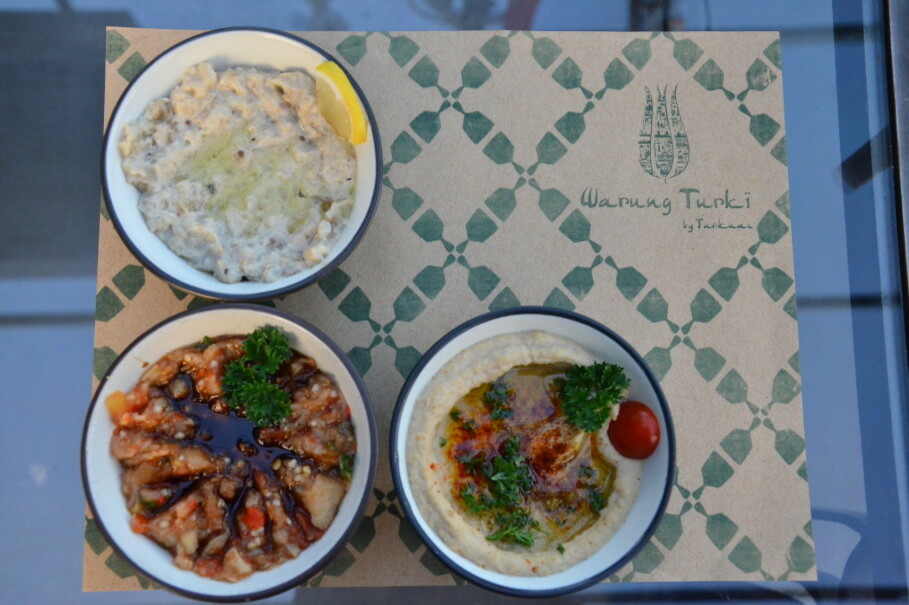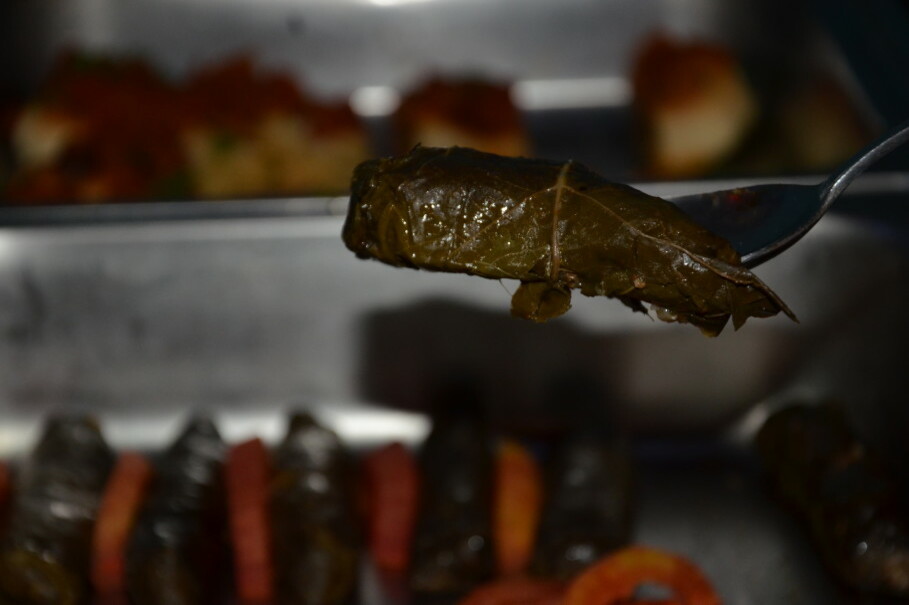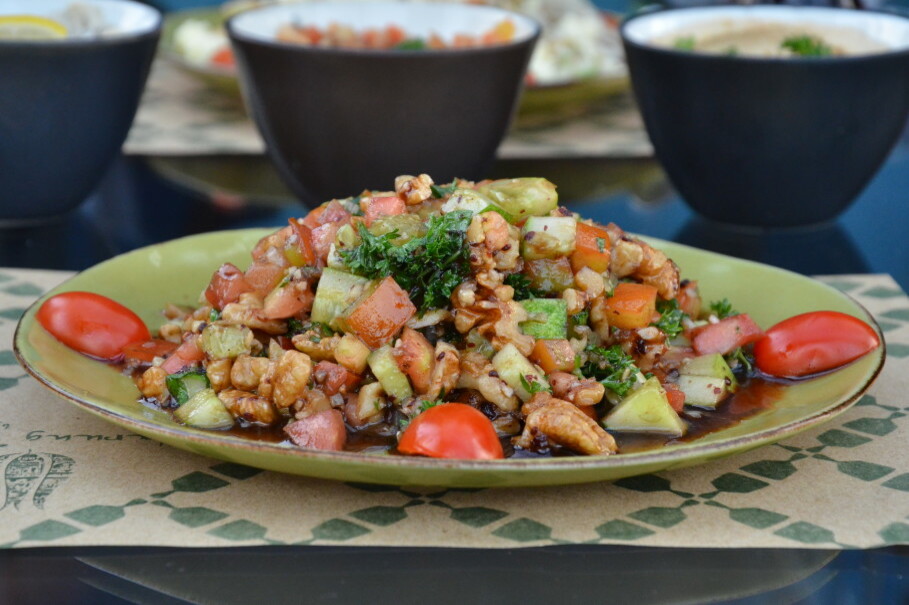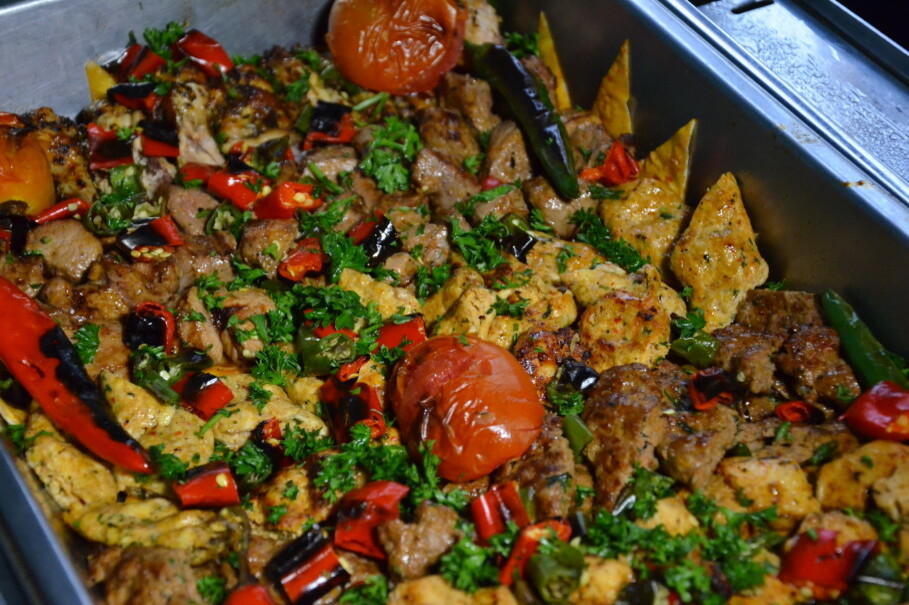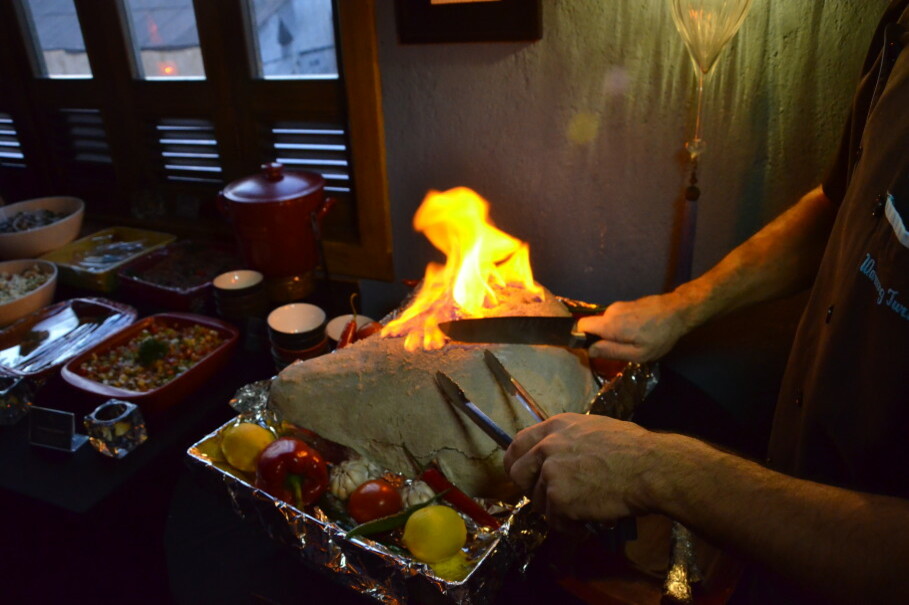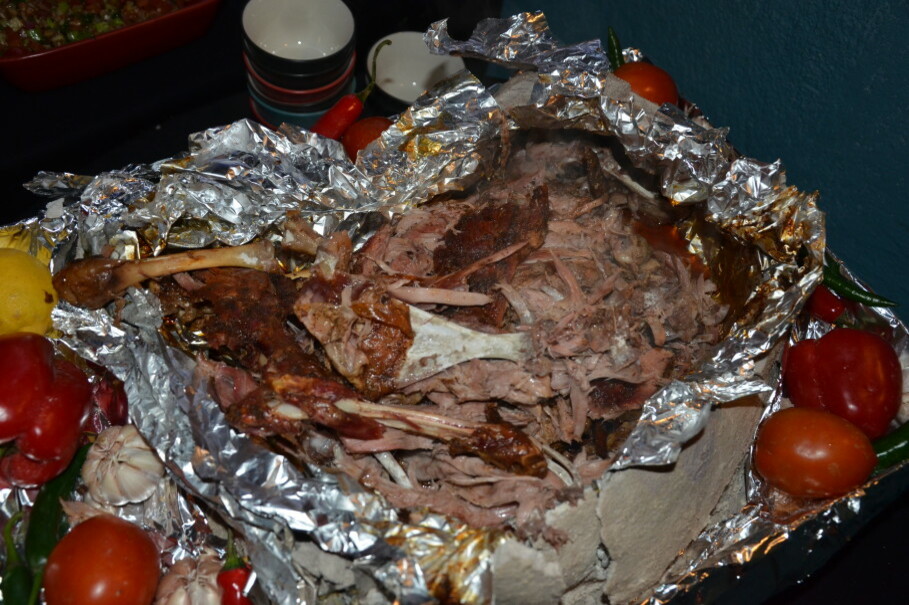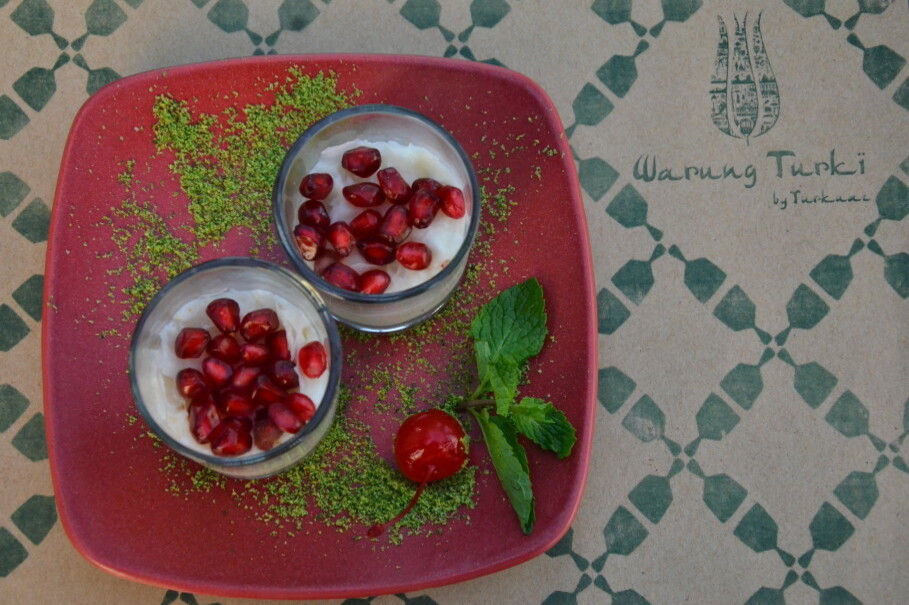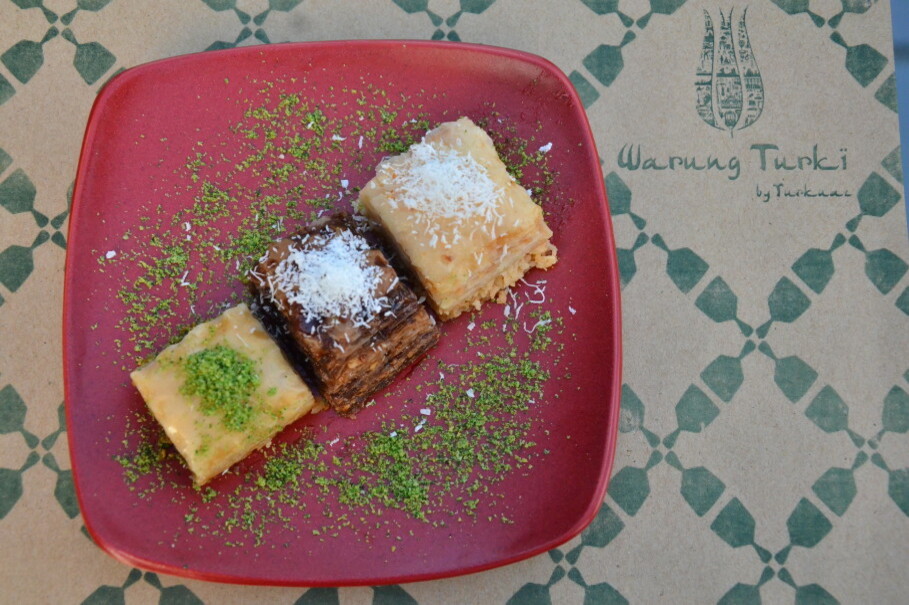Breaking Your Fast the Turkish Way at Warung Turki
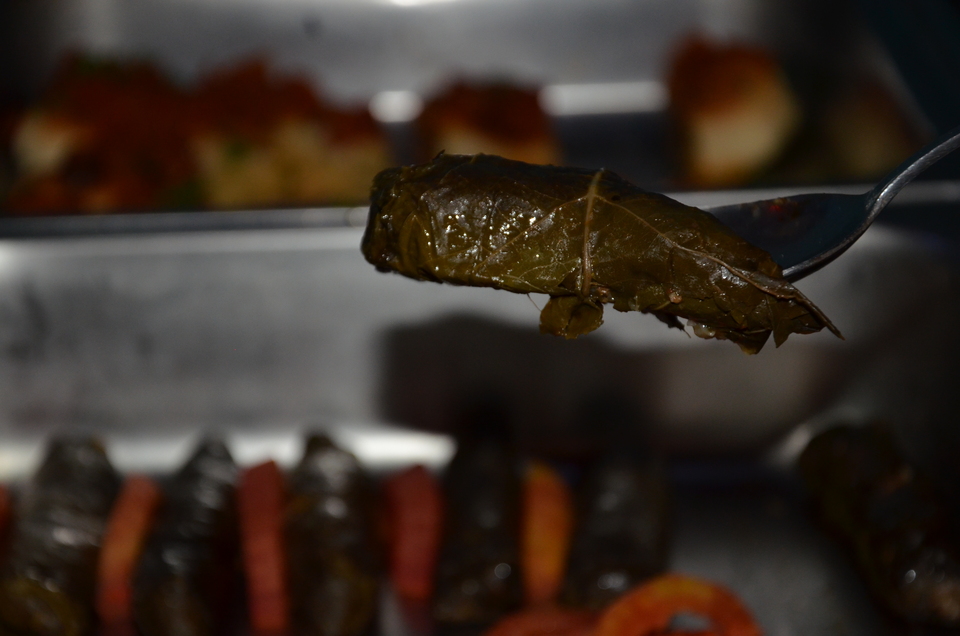
Jakarta. During Ramadan, you can find food from all over Indonesia in Jakarta. Snacks and dishes that are hard to find for the rest of the year – lemang ketan (sticky rice cooked in bamboo), kolak (banana and sweet potato stew), apem (rice flour pancake) just to name a few – seem to miraculously appear on roadside pop-up stalls everywhere in the city on late afternoons, just before Muslims break their fast.
And now for your takjil (sweet snacks eaten before the main meal at iftar, fast-breaking time) you can even gorge yourself on Turkish food, as Warung Turki in Kemang is holding a month-long buffet special that features traditional Turkish Ramadan fares.
When you go there for ngabuburit (relaxing iftar) a complimentary takjil that looks remarkably like a bowl of run-of-the-mill Es Buah (fruit cocktail) will already be waiting for you.
The simple-looking dish is actually an Indonesianized version of hoshaf (watery fruit pudding).
Hoshaf is made by boiling dried fruits with sugar, water, orange blossom and rose water. Since the last two ingredients are hard to get in Indonesia, Warung Turki's head chef and owner, Sezai Zorlu, decided to make do without them.
"We want to have an authentic Turkish Ramadan, but some things are beyond our control," he said.
Not to worry though, there are still plenty of Turkish delights available at Warung Turki to break your fast.
There are the holy trifecta of dips: tahini patlican (wood charcoal-grilled aubergine with tahini, garlic, yoghurt and organic extra virgin olive oil), babaganuç (grilled aubergine, tomato, chili pepper, garlic, olive oil) and zeytinyagli humus (chickpeas and tahini with olive oil). The dips come with wood oven-baked bread.
"Wheat was actually first planted in Turkey 13,000 years ago," Sezai said. "Bread is always on our table."
One of Warung Turki's most popular main courses is yaprak sarma – stuffed vine leaves with vegetables, minced lamb and rice, served with a yogurt garlic sauce.
If you've never had it before, it tastes a little like Indonesia oncom, a traditional Sundanese snack made of fermented tempe, tofu and coconut shavings.
Warung Turki's vine leaves are very soft, you can eat them whole as finger foods.
Health food fanatics can go for the classic Turkish salad, the gavurdagi salatasi, which has crunchy cucumbers, soft tomatoes, slightly bitter walnuts and sweet pomegranate sauce. Lime juice is added at the end for extra zing. The salad is perfect eaten with the dips and bread.
Warung Turki changes their appetizer and dessert menu every day, but two main dishes will be a mainstay during Ramadan: the mixed grill – an assortment of lamb, beef and chicken wings cooked on the grill and the tuzda bebek kuzu, which despite its name – "bebek" is the Indonesian name for duck – is actually a baby lamb baked in salt.
Each meat in the mixed grill retains its individual taste, from the rich flavors of the beef kebab to the extra strong rosemary kick of the chicken wings.
The baby lamb dish is nicknamed "The Sultan's Lamb" in Turkey. "It used to be a special dish for the sultan of Turkey, and today everyone can be sultans," Sezai said.
The lamb has to be seasoned overnight before it's baked in a pile of salt. Since the dish is time-consuming to make, it doesn't even appear in Warung Turki's regular menu but can be ordered two days in advance for catering.
The marinated lamb is encased in a cave of salt and egg white mixture, then baked in the oven for six hours.
Because the lamb is only four to six months old, the meat is tender, and the special cooking method makes it even softer as the salt traps heat and slow cooks the meat.
When the sultan's lamb is brought out to the table, fresh vegetables and garlic cloves are placed next to the meat and then dramatically set on fire.
As the flames burn, an assistant chef chisels away the salt shell and rips the lamb apart, not a hard task since the meat seems to fall off the bone.
"No one cooks lamb better than the Turks," Sezai said.
For dessert, there is güllaç, a traditional Ramadan dessert in Turkey. Pastry slices are layered with nuts, doused with milk and topped off with pomegranate seeds. The milk mixture tastes similar to oatmeal, and the fruits give it a light acidic kick.
And then there is of course baklava, the signature Turkish sweet dessert pastry made of layers of filo (thin dough) filled with chopped nuts and sweetened with syrup.
This dessert used to be served by Turkish sultans to their guests on the 15th of Ramadan in a special procession.
Warung Turki serves three different flavors of baklava: pistachio, chocolate hazelnut and almond.
Sezai said the trick to eating baklava is to eat them upside down so the dry pastry hits your tongue and the syrupy bottom hits the roof of your mouth. The baklava will feel like it's melting in your mouth.
Happy iftar!
Address: Jalan Kemang Raya No.18A, Kemang, South Jakarta.
Contact number: (021) 290 55 898 or (021) 290 55 899
Iftar buffet details:
When: 5:00 - 8:30 p.m. (Sunday to Saturday)
Price: Rp 3oo,000++ for adults, Rp 140.000 ++ for children under 10 years old.
Tags: Keywords:POPULAR READS
KPK Identifies Sidoarjo Regent as Suspect in Corruption Probe
KPK has identified Ahmad Muhdlor Ali as a suspect in a corruption case involving the Sidoarjo Regional Tax Service AgencyEconomic Concerns Overshadow Security Worries for Indonesians in Iran
Indonesian citizens currently in Iran are more concerned about rising inflation than the security situation in the country.'Siksa Kubur' Review: Indonesian Horror with Solid First Act
The beginning part of "Siksa Kubur" is incredibly solid across many fields, including the visual storytelling.IDX Slides 2 Percent as Geopolitical Conflict Rattles Market Confidence
The IDX attributed the subdued performance of the index at the start of the week to the escalating geopolitical tensions in the Middle EastRupiah Declines Against Dollar Amid Geopolitical Unrest
The Indonesian rupiah depreciated against the US dollar in Tuesday's trading session, driven by escalating tensions between Iran and IsraelPopular Tag
Most Popular















